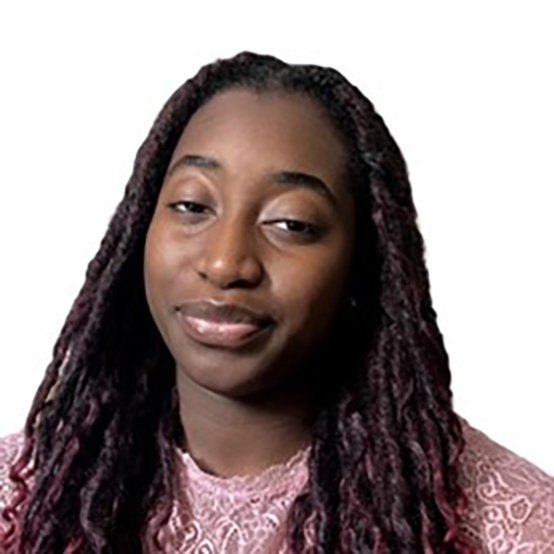

The TELT ambassador scheme at Queen Mary gives students the opportunity to share their experiences and contribute to shaping digital education across the university. In this piece, two final-year TELT ambassadors, Vanditha (Vandy) Widyalankara and Anuoluwapo (Anu) Ogunjinrin , reflect on their experiences as ambassadors and share their perspectives on what makes digital learning effective.
How TELT ambassadors enhance the digital learning experience
For Vandy, the role of a TELT Ambassador is about helping students build confidence with the digital platforms they use every day. “We created a module which works as an induction, so students can teach themselves how to use QMplus. That has been one of our main initiatives,” she explained. Both ambassadors have been especially active during Welcome Week, guiding new students through the essentials of QMplus and showing them where to begin.
Alongside induction, the ambassadors have provided feedback on module design from a student perspective. Vandy emphasised the value of clarity in how content is presented: “Having clear signposts in the module when the term starts helps students understand where to go and what to do. It makes such a difference to know exactly where things are.” For Anu, these contributions demonstrate that students can play an active role in shaping the learning environment. “It’s really about making sure students know how to use the tools available to them and raising issues when things could be improved,” she said.
How we can make learning accessible on QMplus
Clarity and accessibility were recurring themes in the ambassadors’ reflections. Vandy highlighted that “a strong module is one with a clear map — where you can easily see the submission points, the lecture recordings, and the weekly materials. That level of organisation makes learning so much smoother.” She added that technical details also matter: “Simple things like microphone quality make a huge difference because they affect captions and how useful recordings are when you revise.”
Anu agreed, explaining that digital learning works best when students are not distracted by unnecessary barriers. “It works best when you don’t have to spend time figuring out where things are or worrying if something will work. You can just get on with learning,” she said. Both ambassadors see these elements — clear signposting, reliable recordings, and ease of access — as fundamental to a positive learning experience.
What new perspectives TELT ambassadors gain
Being part of the scheme has also changed how the ambassadors think about teaching and learning. Vandy reflected that she now views every lecturer as both a subject expert and a digital educator. “In 2025, every lecturer is also a digital educator. Students rely on QMplus and lecture recordings, so thinking about digital learning is part of teaching,” she said. Anu added that the role has shown her the importance of digital pedagogy: “Being an ambassador has shown me how much difference it makes when academics are clear about what’s happening on the platform and why.”
What challenges and opportunities are
The ambassadors also highlighted areas where students face challenges and how these could be addressed. For Anu, communication around platform maintenance is one of the biggest frustrations. “It would be really helpful if we receive an email in advance about scheduled maintenance. Clearer communication like this would make it much easier to plan our study time,” she said. She suggested that regular reminders and refreshers could keep students up to date with new features too.
Vandy emphasised the role of lecture recordings in students’ study routines. “Students use recordings constantly, so it helps when lecturers pay attention to audio quality which can help ensure captions are accurate,” she advised. Both ambassadors agreed that small adjustments in practice can make a big difference to students’ ability to learn effectively.
Looking forward
When asked about the future of digital education, both ambassadors pointed to opportunities for improvement. Anu emphasised the need for consistency across faculties: “If all students could navigate in a similar way, it would be much easier to keep track,” she said. Vandy suggested that academics should place greater value on digital education as part of their teaching practice. “Even small adjustments to make materials more accessible have a huge impact on the student experience,” she reflected.
This academic year, TELT ambassadors will continue to gather and share feedback on the QMplus user experience and lecture recordings, helping to further enhance students’ digital learning experience in Queen Mary.
Find out more
New design components are now available in QMplus to enhance accessibility. You can also take the Accessibility Short Course on QMplus to explore how to create a more accessible and inclusive learning experience.